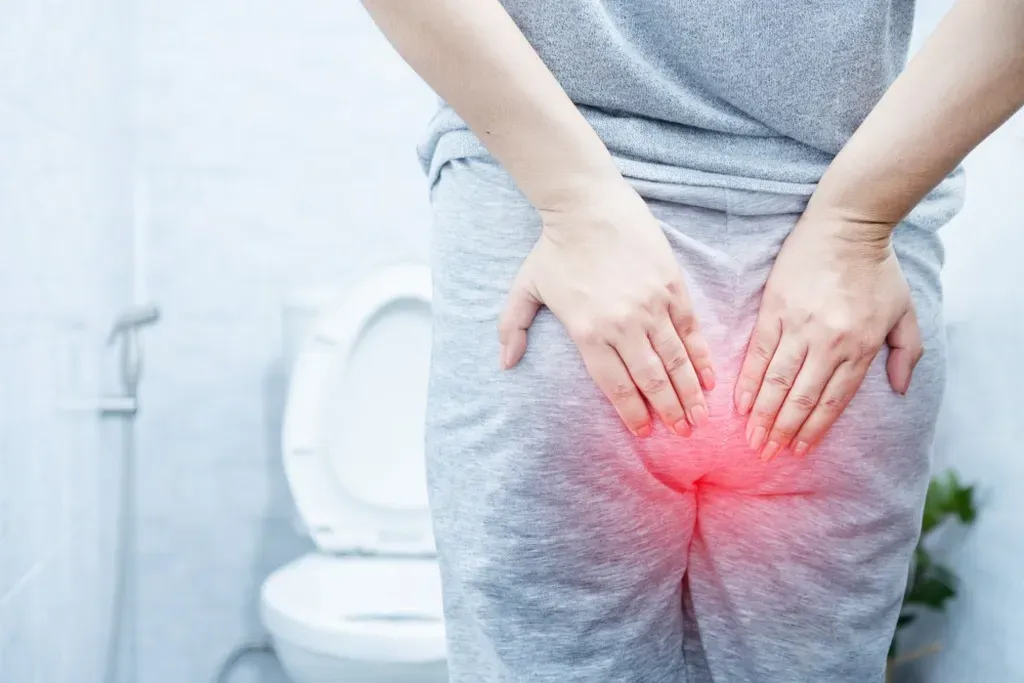
Bowel movements may not top your list of pleasant conversation topics, but if you can’t go or go too often, talking to a professional can clear up what’s bothering your bottom. Meanwhile, here are tips for making your bathroom routine more doable.
Bowel movements can be a touchy subject, but ensuring their regular occurrence is crucial for your overall health.
If constipation and diarrhea have you feeling like your gut is running the show — or not running at all — then it’s time to get a handle on it, and you’ve come to the right place.
Our team of experts at Newtown Gastroenterology knows all the ins and outs of bowel movements and can help you get regular.
Here’s our go-to guide on navigating the delicate dance of daily bowels, helping you ease into a life of consistent digestive bliss.
Dehydration is your arch-nemesis, leaving your stool hard and dry and causing constipation.
You need to drink water throughout the day — it’s the only way to keep everything flowing as it should. A good gauge is the color of your urine; it should be light yellow. If it’s in the amber zone, drink more water.
Hydration hacks:
Carry a water bottle wherever you go to ensure you always have a water source.
Fiber is the nondigestible part of plant foods that adds bulk to your stool, making it softer, larger, and easier to pass. But beyond keeping you regular, fiber has a laundry list of health benefits, from maintaining a healthy weight to reducing the risk of chronic diseases.
There are two types of fiber. Soluble fiber dissolves in water and forms a gel, which slows digestion, while insoluble fiber doesn’t dissolve and helps move material through your digestive tract. Ideally, you want a mix of both.
High-fiber foods you should be eating:
If you’re not getting the recommended 22-34 grams of daily fiber for adults (the right amount depends on age and sex), gradually increase your intake. A sudden spike in fiber can lead to gas and bloating, which are not the kind of movements we’re going for here.
Some foods are more gentle on your gut than others; some can trigger bowel urgency or a complete standstill.
Common culprits include:
Food journaling helps you see your dietary intake at a glance. Record what you eat and any reactions, and note patterns and noticeable irregularities.
Exercise is a fantastic way to stimulate your bowel movements. Physical activity jump-starts your digestive system and helps move food through your intestines more quickly. Even moderate activity, like brisk walking, can keep everything regular.
Certain yoga poses can encourage peristalsis, the involuntary contractions in your digestive tract that drive food along its way through your system.
Above all, be consistent — shoot for at least 30 minutes of exercise most days. Your bowels and your overall health will thank you for it.
Believe it or not, how you sit on the toilet can significantly impact your ability to empty your bowels efficiently. Sitting upright on a standard Western-style toilet seat isn’t ideal for elimination. It kinks your gut, making it harder for the feces to make a clean getaway.
The squatting solution:
The ideal position mimics a squat, which is how our ancestors did their business and is still how it’s done in many parts of the world.
Most bowel irregularities are benign; you can manage most with lifestyle changes. But if you have persistent or severe symptoms, it’s time to call our Newtown Gastroenterology professionals. Chronic constipation or diarrhea could be a sign of IBS or a more serious condition like celiac disease or Crohn’s disease.
Red flags to watch for:
Don’t wait if you have these symptoms. Our Newtown Gastroenterology team can get to the bottom of your chronic bowel problems.
Sometimes, despite your best efforts, you may need extra help reinstating a regular routine. Over-the-counter solutions like bulk-forming laxatives or anti-diarrheal medications can be an effective quick fix for occasional constipation or diarrhea.
However, for long-term battles, you may need to turn to prescriptions. We may recommend various medications for chronic bowel issues, each targeting different aspects, from softening stool to increasing motility.
Book online or call one of our Newtown Gastroenterology offices in New York today.
